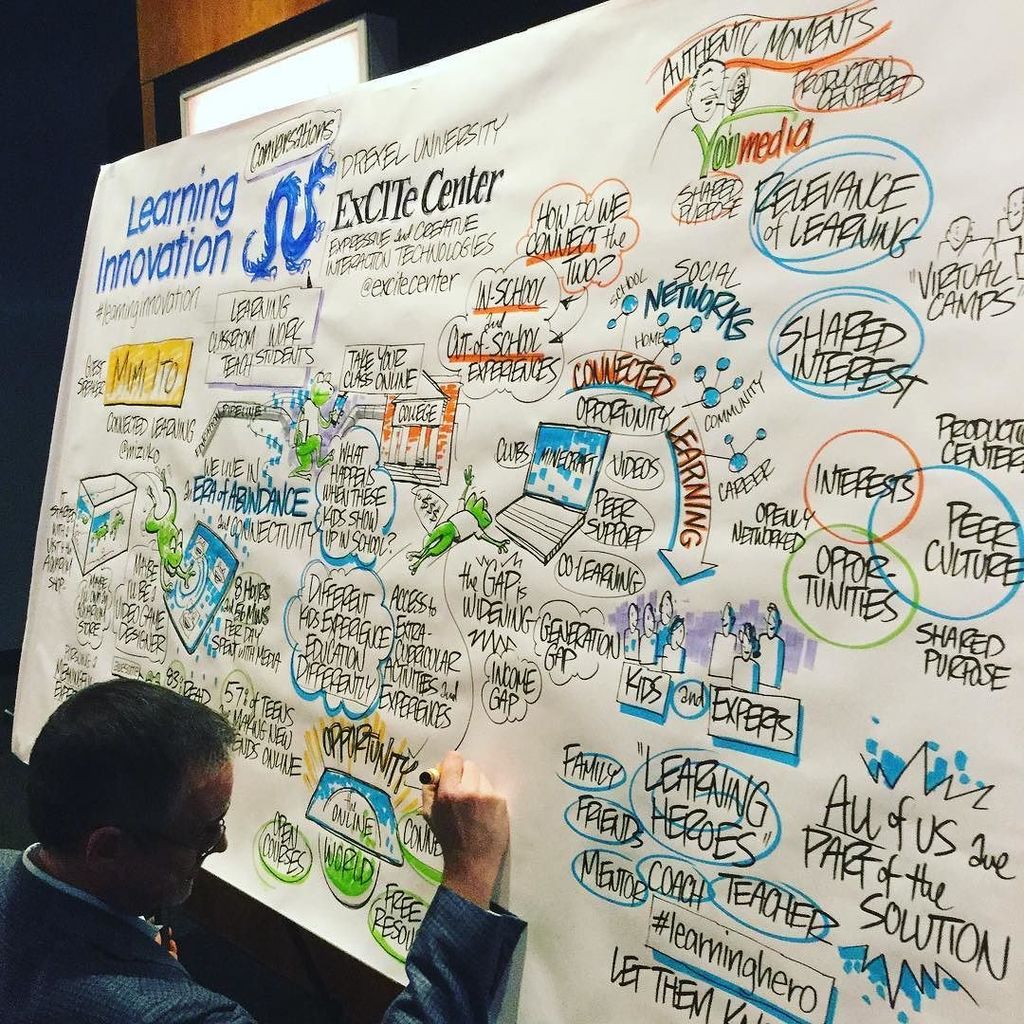Mimi Ito is challenging the common conception that games and social media detract from learning. At her talk late last month at the Academy of Natural Sciences, she spoke of her vision for technology to close the gap in education inequity rather than widen it.
The latest speaker in the ExCITe Conversations Series after former Rhode Island School of Design President John Maeda, Ito currently serves as a professor in residence and the John D. and Catherine T. MacArthur Foundation Chair in Digital Media and Learning of the University of California, Irvine. She also cofounded a global online Minecraft community called Connected Camps, with year-round, summer and girls-only coding camps.
Ito acknowledged the increasing desire to engage students with technology, but pointed out problems in how it’s often done: “Simply providing technology is not enough to engage kids,” she said.
She has also written about this on BoingBoing: “To become real coders, kids need ongoing social support from peers and mentors, and hands-on projects and activities. In the learning sciences, we call this kind of social, project-based and relevant learning ‘connected learning.’”

We want technology innovation to close socioeconomic gaps for students (left), but it often only widens the gap (right). (Photo via Twitter)
An audience member tweeted a question on how cultural change in educators can be triggered to change perceptions of gaming and social media, and Ito cited the success and changing perceptions of Minecraft. “Having games that are non-violent, creative and popular — that will help,” she said.
Drexel University School of Education professor Brian Smith, who helped bring Ito to Drexel ExCITe, said Ito’s research as part of a newer movement: “A lot of research in learning sciences used to be ‘in-school stuff versus out-of-school stuff,’ and Ito is helping bridge the gap by saying that it’s not different stuff.”
Indeed, Ito frames her research as an opportunity for everyone to participate in the mission of better education for all.
“In an era of abundance of social connection and information, it means all of us are part of the solution of learning,” she said.
Before you go...
Please consider supporting Technical.ly to keep our independent journalism strong. Unlike most business-focused media outlets, we don’t have a paywall. Instead, we count on your personal and organizational support.
Join our growing Slack community
Join 5,000 tech professionals and entrepreneurs in our community Slack today!

The person charged in the UnitedHealthcare CEO shooting had a ton of tech connections

From rejection to innovation: How I built a tool to beat AI hiring algorithms at their own game

Where are the country’s most vibrant tech and startup communities?

